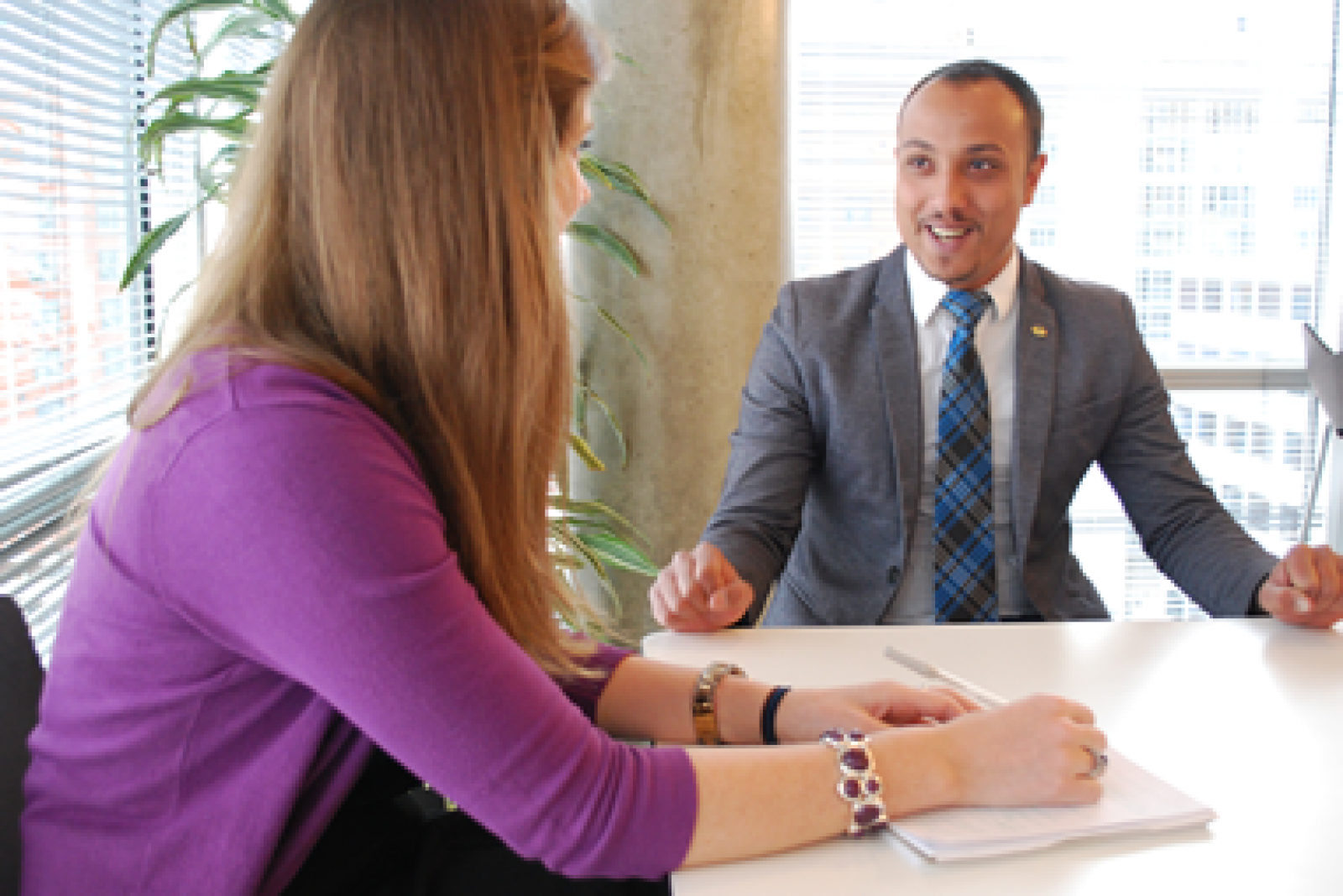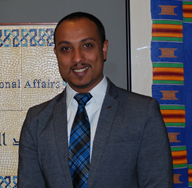
SHARE
April 8 marks International Roma Day, which celebrates the culture of Europe’s largest transnational minority while highlighting the discrimination and hardships that millions of Roma face every day. To mark Roma Day, we sat down with Florin Priboi — an alumnus of NDI programs in Romania and a visiting Hubert H. Humphrey Fellow — to talk about the significance of International Roma Day and his own efforts to help Roma realize political and social equality.
Florin Priboi became interested in politics early in life. As a young Romani boy growing up in Bucharest, Florin and his family were homeless for five years, beginning when he was just 10 years old.
“We were living on the street, we didn’t have a house, and during that time I learned what it means to receive help from somebody else,” he said.
Florin is one of an estimated 10 million Roma living in Central and Eastern Europe who are kept on the fringes of society and are denied basic human rights or access to education, health care and security due to systematic discrimination and lack of political representation.
Florin's experience as a child planted the seed for his interest in politics. “I was a child and in my mind I thought, if I could be a mayor, or something else, I can change the life of many people,” he said.

Despite his family’s financial hardships, Florin continued going to school. He went on to pursue undergraduate and graduate studies in political science and law, and in 2007 became the first Roma in Romania to work as a public servant in the Chamber of Deputies, where he serves as a parliamentary expert on legislative procedures. He was the first Eastern European author to write a book on the subject of Roma parliamentary representation.
“My Grandfather was a Roma survivor of the Holocaust, and he inspired me to fight for dignity, freedom and rights. I stand up today for a moment to honor them,” Florin said.
These are not his only firsts. In 2013, he took a leave from his position to participate in the Hubert H. Humphrey Fellowship, sponsored by the U.S. Department of State, which brings young and mid-career professionals to the U.S. for a year of study and leadership development. He was the first Roma to be selected.
“My Grandfather was a Roma survivor of the Holocaust, and he inspired me to fight for dignity, freedom and rights. I stand up today for a moment to honor them,” Florin said.
His personal inspiration led him to political engagement, and this brought him to NDI. In 2010, he took part in the Institute’s training of trainers program for political parties in Romania, becoming one of the most active and sought-after trainers in such areas as party management practices and political communication, particularly for Roma voters. The program was part of a larger NDI initiative, funded by the National Endowment for Democracy, that promotes active engagement of Roma citizens in civic and political life throughout seven Central and Eastern European countries. To date, NDI has worked with more than 3,000 Roma and non-Roma activists and political leaders.
“Working with NDI helped prepare me to be able to discuss the problems that Roma are facing, and to have the experience to discuss solutions,” said Florin. His participation with NDI also inspired him to write a book, The Increase of Roma Parliamentary Representation. Electoral laws in Romania violate the political rights of Roma, he said. Many mainstream political parties don’t represent the Roma electorate or promote Roma candidates.
Florin believes Roma need to become more active and fight for their rights. He has identified concrete steps Roma civic and political leaders should take, including:
- Roma must adopt a set of political principles and promote the participation of young Roma, who are often disengaged from and disillusioned by the political process
- Roma must also be engaged in institutional reform and offer their opinion on legislation that would affect their future
- It is crucial to mobilize the Roma electorate to engage through the ballot box
- Roma should collaborate with mainstream political parties and conduct research on Roma political participation to fortify their argument
- Roma activists should reach out to the international community for support
As part of Florin's Humphrey Fellowship, he is working at NDI headquarters in Washington, D.C., on a series of online conferences for Roma and non-Roma activists from seven countries — Bulgaria, Hungary, Kosovo, Macedonia, Romania, Serbia and Slovakia. Participants will discuss issues surrounding Roma political representation and recommendations to address them, including modifying electoral legislation to require mainstream political parties to put more Roma candidates on the ballot. Included in the source materials will be his latest book, The Human Right: Roma Political Representation.
Florin also plans to form an organization in Romania that will bring political parties and Roma NGOs together to promote public policies that benefit Roma and get more Roma elected. He could be among them. When asked if he would consider running for office, Florin replied: “I think that I must.”
“Democracy means to be part of the decision making process and to decide those solutions or policies that are affecting you directly or indirectly. At the end of the day, it’s about democracy,” he said.
Related:
- Watch "Who Are the Roma?" with musical score by Hans Zimmer»
- Civic Engagement Helps Lower Barriers Between Roma and Non-Roma Youth»
- Slovakia Elects First Roma Representative to Parliament»
Published April 8, 2014


